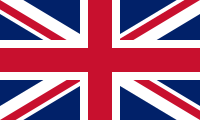 |  |
|---|

All the material developed by Living Heritage 4 all is licensed under a Creative Commons Attribution 4.0 International License.
This training course has been developed in the framework of the Erasmus+ project Living Heritage 4 All.
The project is linked to the European Year of Cultural Heritage (2018). According to a Eurobarometer survey, 8 out of 10 Europeans believe that cultural heritage is important, not only for them personally, but also for their community, their region, their country and the EU as a whole. A very large majority are proud of cultural heritage, whether it is in their own region or country or in another European country. Throughout 2018 and beyond, thousands of initiatives and events across Europe will enable citizens from different backgrounds to explore Europe's rich cultural diversity and reflect on how to preserve it for future generations.
The objectives of the project are:
- To increase the accessibility of educational opportunities for disadvantaged groups;
- To increase opportunities to explore European heritage for vulnerable groups;
- To motivate and empower people from vulnerable groups through new training opportunities in European cultural heritage.
The operational objectives of the project are:
- To produce a comparative study of traditional festivals and foods or activities related to these events in each country/region;
- To produce a collection of workshops that present the cultural heritage of each country and provide an opportunity for everyone to explore European cultural heritage;
- Develop a guide for trainers with a collection of recommendations and best practices for heritage promotion to empower vulnerable groups;
- Create a Heritage4All online learning platform with online learning resources;
- Provide training opportunities for adult trainers and adult learners from vulnerable groups.
The target groups of the project are:
- Adult educators, organisations working in the field of cultural activities, organisations working in the field of adult education and training, representatives in the field of social affairs, local, regional and national public authorities and policy makers;
- Final beneficiaries: vulnerable groups in society, including migrants, ethnic minorities, young people, senior citizens, people from disadvantaged areas, people with disabilities, etc;
- Indirect beneficiaries: local communities.
Download our Comparative Study of Traditional Festivals and Traner's Guide.
View our webinar about the project:
View our webinar about the workshops:
View our final webinar with the results of the implementation of partner's workshops:

All the material developed by Living Heritage 4 all is licensed under a Creative Commons Attribution 4.0 International License.

2020-1-LV01-KA204-077529
The European Commission support for the production of this publication does not constitute an endorsement of the contents which reflects the views only of the authors, and the Commission cannot be held responsible for any use which may be made of the information contained therein.